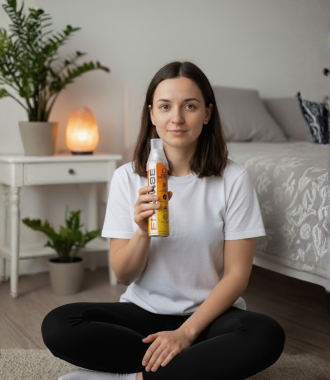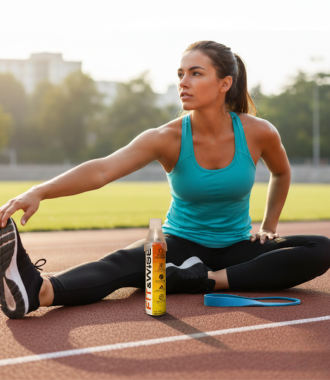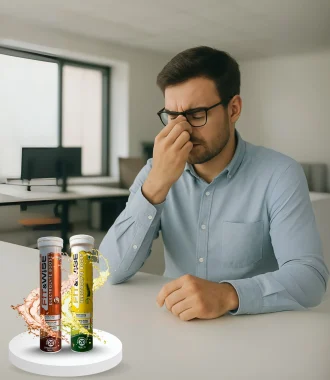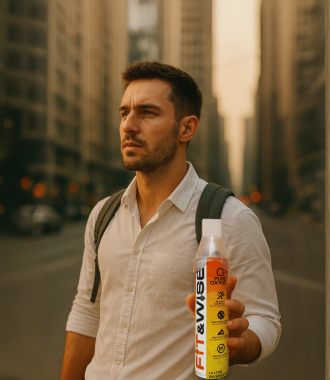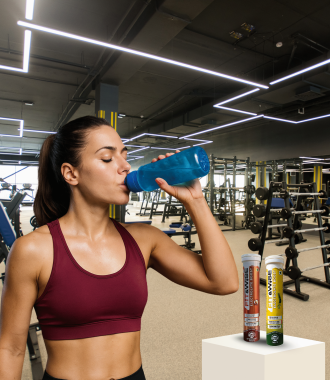Introduction: The Oxygen-Fitness Connection
Whether you’re a seasoned athlete or just starting your fitness journey, oxygen plays a critical role in your success. The body requires oxygen for energy production, muscle recovery, and overall performance. Ensuring your body maintains proper oxygen levels can be the key to unlocking your full potential during workouts and achieving long-term fitness goals.

How Oxygen Fuels Your Muscles
At the core of every physical movement is the body’s need for energy, which is produced through a process known as cellular respiration. Oxygen is a key player in this process, allowing cells, especially muscle cells, to generate adenosine triphosphate (ATP), the energy currency of the body. Proper oxygen delivery ensures that your muscles can continue to function efficiently, even during strenuous exercise.
- Aerobic Activity: In aerobic exercises like running or swimming, oxygen is used to break down glucose and fat to produce ATP. The more oxygen your body can utilize, the better your endurance and stamina.
- Anaerobic Activity: During high-intensity activities, your body may shift into anaerobic respiration, which produces less ATP and leads to the buildup of lactic acid. Oxygen helps to flush out this acid, speeding up recovery and preventing muscle fatigue.

The Impact of Low Oxygen Levels on Performance
When oxygen levels drop, either due to poor breathing techniques or environmental factors (like high altitudes), performance suffers. Without adequate oxygen:
- Muscle Fatigue: Lactic acid builds up more quickly, causing fatigue, cramps, and decreased endurance.
- Slower Recovery: Insufficient oxygen delays the removal of metabolic waste, leading to prolonged recovery times.
- Reduced Mental Focus: Lack of oxygen affects not just physical performance but also mental clarity, leading to poor coordination and decision-making during workouts.
Why Endurance Athletes Rely on Oxygen Efficiency
Endurance athletes, in particular, understand the importance of oxygen efficiency. Training your body to use oxygen more effectively can significantly improve stamina and prolong the time you can maintain peak performance. This is why techniques such as controlled breathing and high-altitude training are popular among long-distance runners, cyclists, and swimmers.
- VO2 Max: This is a key indicator of aerobic fitness, measuring the maximum amount of oxygen your body can use during intense exercise. Improving your VO2 max is directly linked to better performance.
- Oxygen Supplements: Some athletes turn to supplemental oxygen (like portable oxygen cans) to enhance performance, especially when training or competing in environments with reduced oxygen levels.
- Reduced Mental Focus: Lack of oxygen affects not just physical performance but also mental clarity, leading to poor coordination and decision-making during workouts.
Oxygen’s Role in Post-Workout Recovery
Oxygen is just as important after a workout as it is during one. After exercise, your body goes through a recovery phase where it repairs muscle tissue, replenishes energy stores, and removes waste products. Oxygen is vital for these processes:
- Tissue Repair: Oxygen supports the repair of micro-tears in muscles, speeding up recovery and helping to build strength.
- Reducing DOMS: Delayed onset muscle soreness (DOMS) can be mitigated by proper oxygenation, as it helps in flushing out the lactic acid and other waste products accumulated during exercise.
- Mental Recovery: Proper oxygen levels support not just physical but also mental recovery, helping you feel more focused and less fatigued after intense exercise.
Can Portable Oxygen Cans Enhance Fitness Results?
One question many fitness enthusiasts ask is whether using portable oxygen cans can improve their results. While they should not be considered a substitute for a balanced training routine, oxygen cans can provide a temporary boost, particularly during high-altitude training or intense physical activity that reduces oxygen intake.
- Quick Oxygen Boost: During high-intensity workouts, using an oxygen can may provide the immediate oxygen supply your muscles need, potentially improving endurance and reducing fatigue.
- High-Altitude Training: For those training at high elevations where oxygen levels are lower, oxygen cans may help maintain performance and prevent early burnout.
Oxygen and Long-Term Fitness Success
Achieving fitness success requires consistent training, recovery, and care for your body. Proper oxygen levels play an important role in each phase of this process. In the long term, improving your body’s ability to process oxygen through cardiovascular training and proper breathing techniques can result in:
- Enhanced Endurance: The ability to train harder and longer without fatigue.
- Improved Muscle Strength: Better oxygen delivery helps in building stronger, more resilient muscles.
- Faster Recovery: Oxygen aids in reducing soreness and muscle damage, allowing you to train more frequently.
Tips for Optimizing Oxygen Levels in Your Workouts
To ensure you are maximizing oxygen intake during exercise, follow these tips:
- Focus on Breathing: Practice deep, controlled breathing techniques during workouts to ensure optimal oxygen intake.
- Incorporate Aerobic Exercise: Regular aerobic exercise improves your cardiovascular system, enhancing oxygen delivery.
- Train in Various Conditions: If possible, practice training in different environments, such as at high altitudes, to improve your body’s efficiency in processing oxygen.
- Stay Hydrated: Dehydration can limit your body’s ability to transport oxygen efficiently, so make sure to drink plenty of water before and after workouts.
Conclusion: Oxygen is Key to Fitness Success
Proper oxygen levels are crucial for both workout performance and recovery. By optimizing your oxygen intake and enhancing your body’s ability to use oxygen, you can achieve better endurance, faster recovery times, and overall fitness success. Whether through improved breathing techniques, aerobic conditioning, or the occasional use of supplemental oxygen, ensuring that your muscles and brain get the oxygen they need is key to reaching your fitness goals.



